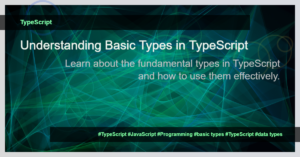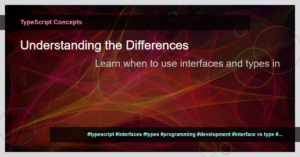Heading: Introduction to Func and Action Delegates
Func and Action delegates in C# are powerful tools used for creating and working with functions in a flexible and dynamic manner. They play a crucial role in functional programming and can be used to define and pass around functions as parameters or return values.
Heading: Understanding the Difference: Func vs. Action
The main difference between Func and Action lies in their return types. The Func delegate allows you to specify a return type, whereas the Action delegate does not return a value. Both delegates can have up to 16 parameters.
Heading: Using the Func Delegate
Syntax:
Func<ReturnType, Parameter1Type, Parameter2Type, ..., ParameterNType> function = (param1, param2, ..., paramN) => {
// Function body
return returnValue;
};
Example:
Func<int, int, int> sumFunc = (a, b) => a + b;
int result = sumFunc(3, 4); // result = 7
Explanation: In this example, we define a Func delegate that takes two integer parameters and returns an integer. We assign a lambda expression to the delegate, which calculates the sum of the two parameters and returns the result.
Heading: Using the Action Delegate
Syntax:
Action<Parameter1Type, Parameter2Type, ..., ParameterNType> action = (param1, param2, ..., paramN) => {
// Action body
};
Example:
Action<string> greetAction = name => Console.WriteLine($"Hello, {name}!");
greetAction("John"); // Output: Hello, John!
Explanation: In this example, we define an Action delegate that takes a string parameter. We assign a lambda expression to the delegate, which writes a greeting message to the console.
Heading: Practical Use Cases
- Callbacks: Func and Action delegates are often used for implementing callbacks, where a method can be passed as a parameter to another method.
- LINQ: Func delegates are commonly used in LINQ queries to define predicates or transformation functions.
- Asynchronous Programming: Action delegates are useful for defining and executing asynchronous operations, such as invoking API calls or updating UI components.
- Dependency Injection: Func delegates can be used to create factory methods for resolving types dynamically during dependency injection.
Heading: Conclusion
Func and Action delegates are valuable tools in C# that allow for more flexibility and modularity in your code. By leveraging these delegates, you can create highly customizable functions and improve the overall design of your applications. Start incorporating Func and Action delegates into your C# projects today!



